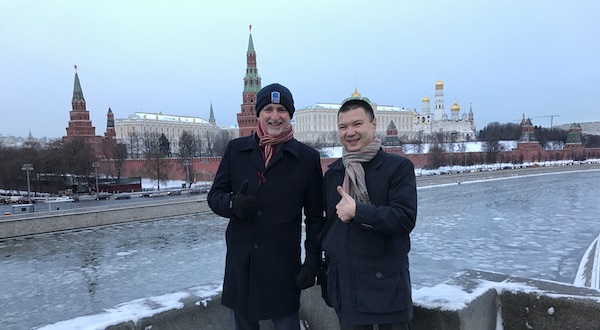
Mining is a global industry that takes many of our members to some of the most exotic and remote locations you can think of; providing the experiences and stories of mining industry legend.
We have asked some of our Australian colleagues to share the experiences of the weird and wonderful places their roles have taken them to. This month Jeff Elliott from CSA Global shares his experiences in Russia.
Q. Why is this region important to mining?
A. Russia is the largest country in the world. Rich oil and gas reserves have enabled Russia to export fuels on a large-scale and become self-sufficient in terms of energy. It is also largely self-sufficient in almost all significant mineral commodities and has rich reserves of metallic, industrial and agri-minerals.
Production / reserves:
Approximately 20,000 Russian mineral deposits have been explored, and more than one-third of these have been mined.
Q. What are the key commodities?
A. Russia is one of the most resource-rich counties globally. The country possesses an enormous endowment of gold, oil, gas, iron ore, coal, diamonds, nickel, copper, platinum, chromium, manganese, titanium, tungsten, lead, phosphate, tin and gold.
Q. What other industries are operating in the region – does that make it easier to do business?
A. Russia has a large and diverse economy. This includes a range of mining and extractive industries and that feed in to manufacturing and chemical industries. The size and maturity of the economy and the depth of capital certainly enables business but it can be a complex place for Western companies to do business.
Q. What opportunities are available for Australian investment and business?
A. There are huge opportunities for all types of METS (Mining, Engineering, Mineral Technical Services) companies due to the strong desire to modernise the mining / extractive industries and to seek continuous improvement and adopt best practices. Probably more so in the mining, processing and technology areas rather than the exploration space.
Q. What are some of the considerations for doing business – accessibility, sovereign risk, remote location, infrastructure, etc?
A. You really do need to do your market research and identify the opportunities and the risks. Ensuring you have a reliable local partner is an imperative in terms of understanding the local laws and customs. Language and cultural barriers can also be significant, so you do need to consider how you are going to deal navigate these. Of course, working in another country is not the same as travelling. You need to communicate regularly to ensure there is a common understanding of expectations and obligations. When it comes to HR / IR, accounting and taxation this is all strictly regulated; it is critical to have a Russian accountant either employed or outsourced. Developing business activities in Russia is resource and time-intensive, so expect to commit significant time, personnel and capital.
Q. What is the cultural business experience like – is it social, where is business done, are there any special quirks we should know about?
A. Initially it is serious and formal. Russians are very respectful to their elders, so dependent on age and experience, they can be less open to ideas of the younger generation. Once a relationship is built it is usually cemented over social events.
Q. What was the one challenge you didn’t think you’d be able to overcome or have you any ‘war stories’ to share?
A. I initially had concerns about the extensive commercial contracts we entered in to and what our payment risk would be like. This has proven to not be an issue. As with most business activities if you scope the job well and then deliver a valuable product on scope, budget and schedule then things go well.
Q. What are the differences in the mining practices between this region and Australia?
A. Equipment and infrastructure is often older, therefore, there is a general lack of modern technology applied throughout the industry (although some mines have quite modern equipment and practices). Mining operations often rely on labour-intensive practices. The Russian mining industry is highly regulated and follows prescriptive practices which can be very different to Australian industry standard practices.
Q. What expertise and influence can Australian business bring to this region?
A. Initiative thinking. Best practice in safety, planning, productivity and reporting.
Q. As an Australian business involved in mining, how were you received by local business, were they interested in understanding our mining practices and application of technology?
A. Very much so, and we have been warmly welcomed by other service providers and the mining companies. We regularly host delegations to showcase the Australian mining industry and undertake business development trips to Russia and neighbouring countries of the CIS to talk about issues they face and possible solutions and ways of dealing with the challenges.
Q. What interesting mining/technology practices did you take away from your time in this region?
A. Mining practices related to dealing with the climatic and logistical extremes of the Arctic and permafrost. Also, a deep respect for their long-term commitment to education and research. The level of interaction between universities and other government and non-government research facilities with the mining industry is something that Australia should aspire to.